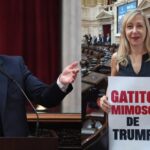
Tesla appears to have convinced an army of small investors and large funds to ratify Elon Musk’s $56 billion pay package. Now comes the hard part: persuading an already skeptical Delaware judge to recognize it.
Musk on Wednesday night said shareholders were voting in favor of both the pay package and the board-sponsored change of Tesla’s legal domicile from Delaware to Texas. Official voting results will be released at the company’s annual meeting on Thursday.
Musk is Tesla’s driving force and responsible for many of its advancements, leading to vocal support for the pay package, especially among small shareholders. Still, sales and share price have fallen recently, raising concerns that resulted in a concerted ‘no’ vote.
Before Tesla can give shares to Musk, there will likely be months of litigation over the vote to ratify the payment, Musk’s efforts to mobilize shareholders in support of his compensation, and the appeal of the original decision four months later by a Delaware judge. have canceled the payment package.
A final outcome favorable to Musk is not certain and will not be quick.
Judge Kathaleen McCormick of the Delaware Court of Chancery rescinded the pay package in January because she found Musk improperly controlled the board’s 2018 process for negotiating it. She also ruled that Tesla did not fully inform investors before they voted for him.
“A shareholder vote would not cause an automatic reversal of Chancellor McCormick’s decision. We’re in uncharted waters here,” said Samantha Crispin, corporate attorney at Baker Botts.
In Tesla’s view, Thursday’s shareholder vote essentially turned back time and corrected the 2018 shareholder vote, releasing enormous amounts of information to investors, including McCormick’s 200-page decision.
Tesla argued that it also fixed the problem of Musk’s domination of the pay package negotiation process. A special committee was created, eventually consisting solely of Kathleen Wilson-Thompson, an independent board member, who reviewed the 2018 pay agreement and decided it was in the best interests of shareholders.
But Tesla also acknowledged in securities filings that a favorable ratification may not resolve the payment dispute. Ratification is primarily seen as a tool to correct problems such as technical flaws in corporate documents.
Many large shareholders and some smaller ones voted against the pay package, frustrated by the size of the award, Tesla’s slowing business and Musk’s growing list of distractions, including businesses in rocketry, AI, social media, neuroscience and tunneling.
At least one shareholder has already filed a legal challenge to the vote.
The Delaware Court of Chancery lawsuit by Tesla investor Donald Ball accused Musk of using “coercive and heavy-handed tactics” to get his pay package approved. He cited posts from Musk on his social platform X saying he was uncomfortable turning Tesla into an AI leader unless he owned 25% of the company’s shares, nearly double his current holdings.
But Tesla and Musk will likely argue that Musk has the right to express his desire to leave the company.
Professor Zohar Goshen of Columbia Law School said he believes the Delaware court’s decision should be reversed after a favorable vote, but acknowledged that the situation is too unusual to say with certainty.
“It is difficult to estimate how the court will decide because there is a lot of noise surrounding this decision. But my personal view is that Tesla must prevail,” said Goshen.
Via Reuters.
Source: https://www.ocafezinho.com/2024/06/13/musk-pode-ter-convencido-os-investidores-da-tesla-a-apoiar-seu-pagamento-agora-ele-deve-persuadir-um-juiz/

